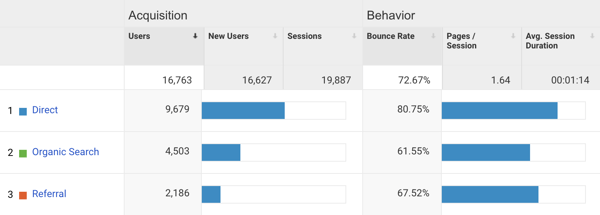Back in July, the BBC reported that the UK’s newly-appointed cost of living tsar wanted businesses to slash their marketing budgets – so they could focus on cutting the price of their products and/or services. (Source: BBC)

Now, it’s not 100% clear whether the government are still going ahead with this initiative (source: The Drum). But marketing spend is often the first ‘overhead’ to face the chopping block in a time of crisis, and talk of the tsar’s proposal cropped up again on Radio 4 this morning, so we thought it was high time we weighed in on the subject.
And yes, before you start tapping out that angry email, we’re well aware of the fact that we’re going to look biased here. We work hard to stay a-political at Red Evolution - mainly because extensive polling shows that no one (and we do mean absolutely no one) cares about what we have to say on the subject - and we genuinely don’t want to sling mud.
But the idea that cutting your marketing budget will somehow improve the current situation is risible – and ought to be swiftly dispelled. Cutting your marketing budget will actually slow growth, impede any plans that look beyond the immediate crisis and damage your business’s future prospects.
And that’s a hill we’re willing to die on.
So Why Is Slashing Your Marketing Budget Such A Bad Idea?
Cutting your marketing budget in hard times is the very definition of short-termism. David Buttress (that’s the government’s cost of living tsar, for those not in the know) has a vested interest in encouraging businesses to re-invest their marketing budgets in a colossally short-sighted cost cutting exercise.

The UK government is trying its best to curb rising inflation rates and diverting marketing budgets to fund a market-wide price-cut would go a long way towards helping them achieve that aim.
But it’s important to remember that marketing is a primary driver for business growth. Countless studies have shown that every pound spent on a tactic like pay per click (PPC) advertising always returns at least two pounds in profit (source: Marketing Week).
And then there’s the broader, long-term benefits associated with building a strong brand, maintaining market share and keeping your most important stories in front of your target audience. Forbes said it best when they said:
Done right, (marketing) can transform apathy and ambivalence into caring and belief...It’s not remotely easy, but the continued successes of some major consumer brands demonstrate marketing’s potential.” (Source: Forbes)
And it’s worth noting that Forbes are not alone here. McKinsey, the Harvard Business Review and Deloitte have all weighed in on the power of marketing – speaking (at length) about its ability to help business recover from sustained shocks and build sustainable growth (source: Deloitte)
It’s Easy To Track Your Return On Investment
Not convinced? Don’t take anyone’s word for it. In this day and age, we can track all the data needed to work out the exact return on investment (ROI) generated by every pound you spend. And yes, that includes the pounds spent on content marketing, social media advertising or podcast production.

For a proper overview of the benefits, jump on a quick call with your agency (or in house marketing team) and ask them to justify your spend.
They might not be able to give you an exact, pound for pound breakdown of the ROI generated by their work, but they will be able to show you how their activities have driven growth and positioned your business in a way that makes it possible to take advantage of future opportunities.
They'll also be able to show you how each and every channel performs, how your best customers have found your site and what percentage of the people who end up reading your brand's content turn into genuine prospects.

This is all part and parcel of understanding the vital role marketing plays in your businesses' growth, and it's something you should definitely square before you start making decisions about cutting your spend.
Sans Marketing, Businesses Wither On The Vine
There’s a broader, underlying problem here too: Most UK businesses have spent the majority of their life-span fighting - tooth and nail - for every visitor that lands on their website(s).

In Performance Marketing World (PMW)’s coverage of the government’s new initiative, a commentator says:
“It is extremely unlikely that the relatively small gains in pricing – ad/sales ratios in packaged goods are typically 5% or less – would make up for your competitors being able to out-shout you in the market. Not to mention you couldn't advertise to tell anyone you had lower prices. (Source:PMW)
And we think this is well worth a more detailed explanation. Simply put, getting eyeballs on your business costs money. You can pay to produce relevant content for organic search, or pay by the click to tap into audiences that you can’t reach organically
You can pay to promote social content or focus on producing good Youtube videos, but the point is that you have to maintain your share of the available audience. If you stop doing that, other businesses can and will move into the space you currently occupy.
>And what this means is that your audience will stop being exposed to your brand. You’ll find it harder to publicise the clever initiatives you’ve cooked up to beat inflation; you’ll find it harder to share your success stories or build your authority.
People will stop visiting your website, leads will dry up and you’ll find yourself working overtime to tread water.
More to the point, the UK economy is largely stagnant . According to the Financial Times, our growth rates have been in sharp decline since the financial crisis in 2008 and we’re outperformed by economies across the EU (source: Financial Times).
If we want to buck the trend and breathe fresh life into our businesses, we need to be investing in tactics that can drive real growth – instead of focusing on making unsustainable cuts to our pricing so the UK government can reign in inflation.
How To Focus On High-Impact Strategies
And yes, that does mean that we're drawing a distinction between marketing spend and effective marketing spend. While we'll always mock calls to axe marketing in times of turmoil, we do understand the need to ensure every pound spent on your marketing sees a return. If you're up against the wall and doing everything to cut costs, you want to make sure you're focusing on tactics that are easy to track and measure.

SEO, PPC, podcasting and video marketing all drive visitors that can be tracked via Google Analytics and other 3rd-party platforms, allowing you to work out whether they're generating a return or syphoning valuable funds away from more profitable activities.
Other tactics, like influencer marketing, magazine or billboard advertising are much harder to track and may be better left to times of plenty. Which is to say that they can help you build a brand, but their innate lack of transparency does make them harder to justify in times of crisis.
We often talk about verifiable and budget-friendly marketing options on our podcast (Digital Marketing From The Coalface) and our blog is full of useful resources. We're also happy to talk you through some likely options, and always offer obligation-free consultations to people who're looking to grow their business so if you find yourself looking for sensible ways to invest your marketing budget, don't hesitate to reach out.

